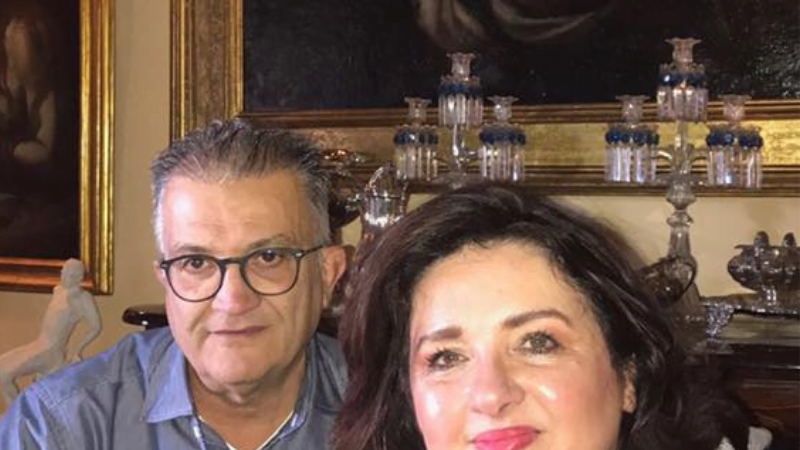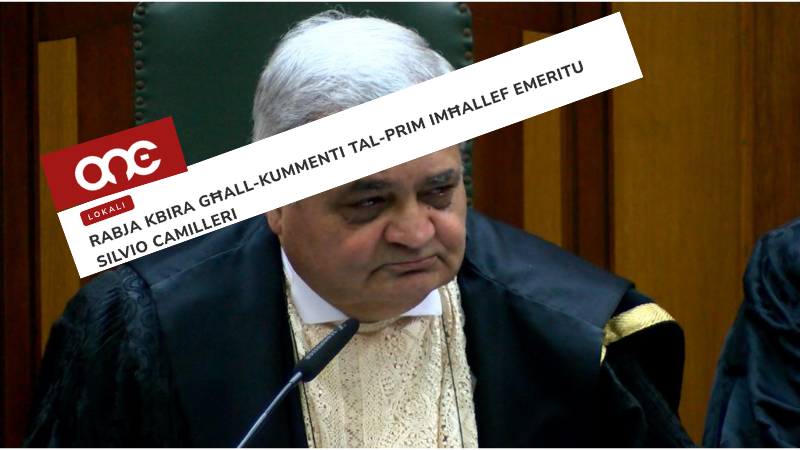Patrick Dalli didn’t get the result he wanted in court, so now he’s attacking the judicial system for breaching his human rights.
That’s a lot like not studying for an exam and then blaming the teacher for your crappy grade.
I wish I’d thought of this tactic in high school. I might have done better in math.
This long saga began in 2014 when journalist Caroline Muscat wrote articles for The Times of Malta about illegal works being done on a farmhouse in an ODZ (Outside Development Zone) area.
Illegal building in ODZ areas is clearly a legitimate item of news, no matter how out of control such building has become in Malta.
But this story is of even greater public interest because the farmhouse was owned by Pada Builders Limited — a company in which Patrick Dalli and his wife Helena Dalli, the Equality Minister, have 99% ownership.
Patrick Dalli was obviously very unhappy to see his name in print. Like a man caught doing something naughty in the bushes on a dark night, rather than feel shame, he screamed “not fair!” at the person holding the flashlight.
Dalli instituted two lawsuits against the journalist in response to those Times of Malta articles, and he initially won his case, with a shocking €10,000 in damages, one of the highest amount in damages ever awarded for libel in Malta.
That ruling by Magistrate Francesco Depasquale set a very dangerous precedent. In essence, it implied that the spouses of politicians are out of bounds from journalistic scrutiny.
If left uncontested, this could also open the door for a corrupt politician to hide assets — like Panama companies or bank accounts — under the name of a family member and the public need not know.
Even China and Pakistan do not condone such behaviour.
Fortunately, sober second thought prevailed. The Appeals Court overturned the lower court judgment earlier this month, with a very clear statement in defence of press freedom. Even the OSCE Representative on Freedom of the Media publicly welcomed the Appeals Court judgment.
Judge Anthony Ellul confirmed the factual accuracy of Caroline Muscat’s reporting, adding, “A journalist has a duty to investigate and report on matters of public interest.”
Judge Ellul went on to say that if Dalli was so worried about his reputation, or that of his wife the Minister, he really should have given more thought to it before engaging in all that naughty illegal development.
This should have been the end of the matter. But like a teenager who screams “Unfair!” rather than accept responsibility for his own bad grades, Patrick Dalli still feels wronged.
After a four-year long battle in court, which he lost, he wrote on social media: “Don’t worry, Caroline, it’s not over”.
Dalli has now retaliated with a judicial protest against the Minister for Justice, the Director General of Courts and the Attorney General, claiming the court used arguments which were “totally incorrect and surprising”.
He referred to “venomous and untrue journalism” in the judicial protest, despite the Appeals Court statement that the series of facts reported had been proved “substantially true,” and confirmed by testimony and photos.
Read: On the journalist’s duty to scrutinise those in power… and their spouses
But Patrick Dalli is convinced this is personal. First, he thought Caroline Muscat was after him because of who he is rather than what he did, and now he thinks the Judge couldn’t have been fair if he passed such comments about him.
How could he receive fitting treatment from a court that made such comments about him? Or to stay with our high school analogy, “How could I possibly get a fair grade? The teacher doesn’t like me!”
Patrick Dalli had no problem with the comments made by the First Court when it suited him. We didn’t see Caroline Muscat suing the Justice Minister or the Attorney General then, either.
This story is strange enough on its own, but it does more than just suggest analogies about sulking school kids.
Patrick Dalli is also taking a swipe at the Judge.
Former European Court of Human Rights judge Giovanni Bonello has recently spoken out about the judiciary in Malta, saying many “are just there to rubber-stamp whatever the government expects them to rubber-stamp”.
In this scenario, Judge Anthony Ellul stood out. He did not rubber-stamp whatever Patrick Dalli expected. Instead, he made a strong statement in defence of press freedom, quoting principles that are the foundation of quality journalism.
Judge Ellul warned that libel laws must not be used by public persons as a political weapon against freedom of expression. And Patrick Dalli’s behaviour shows that it could not have come at a better time.












